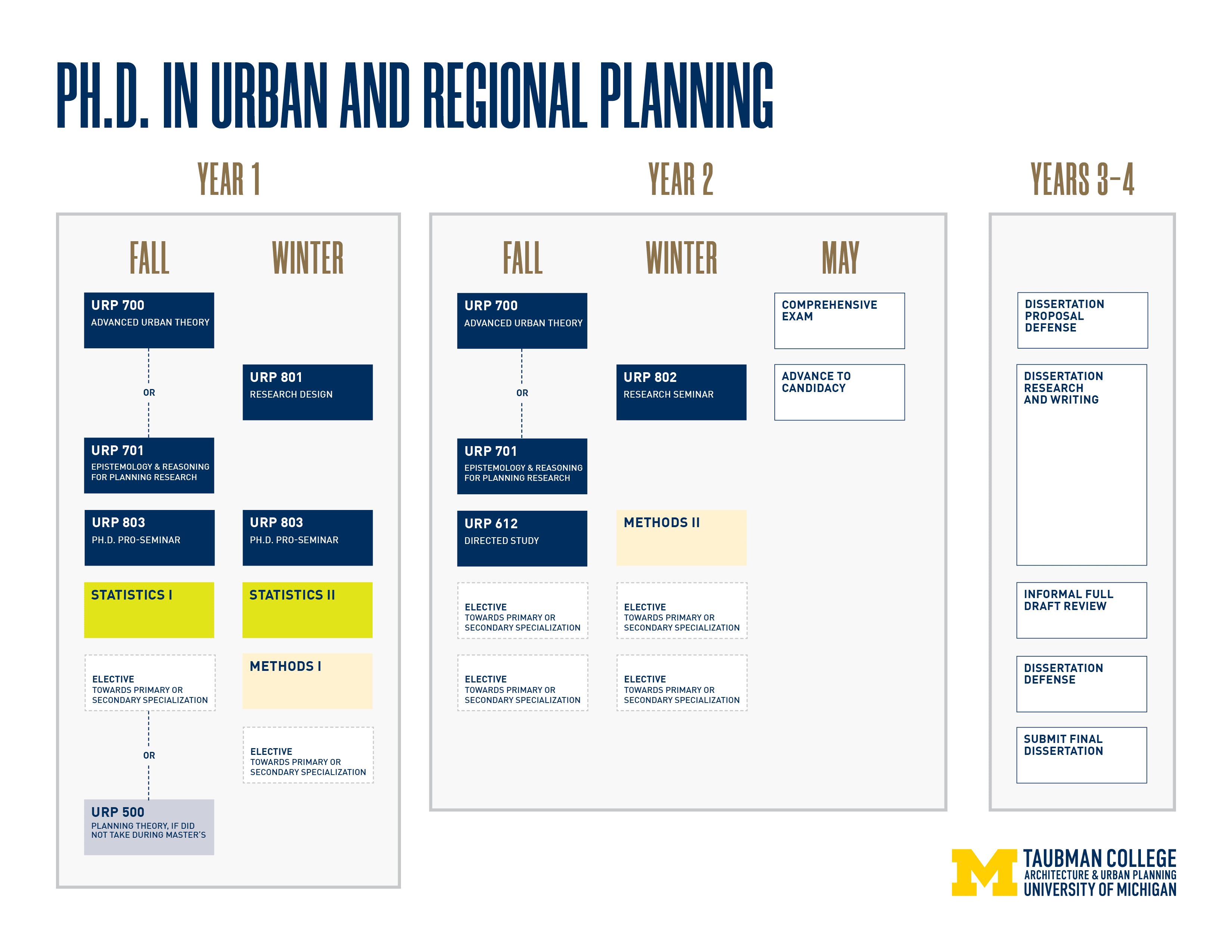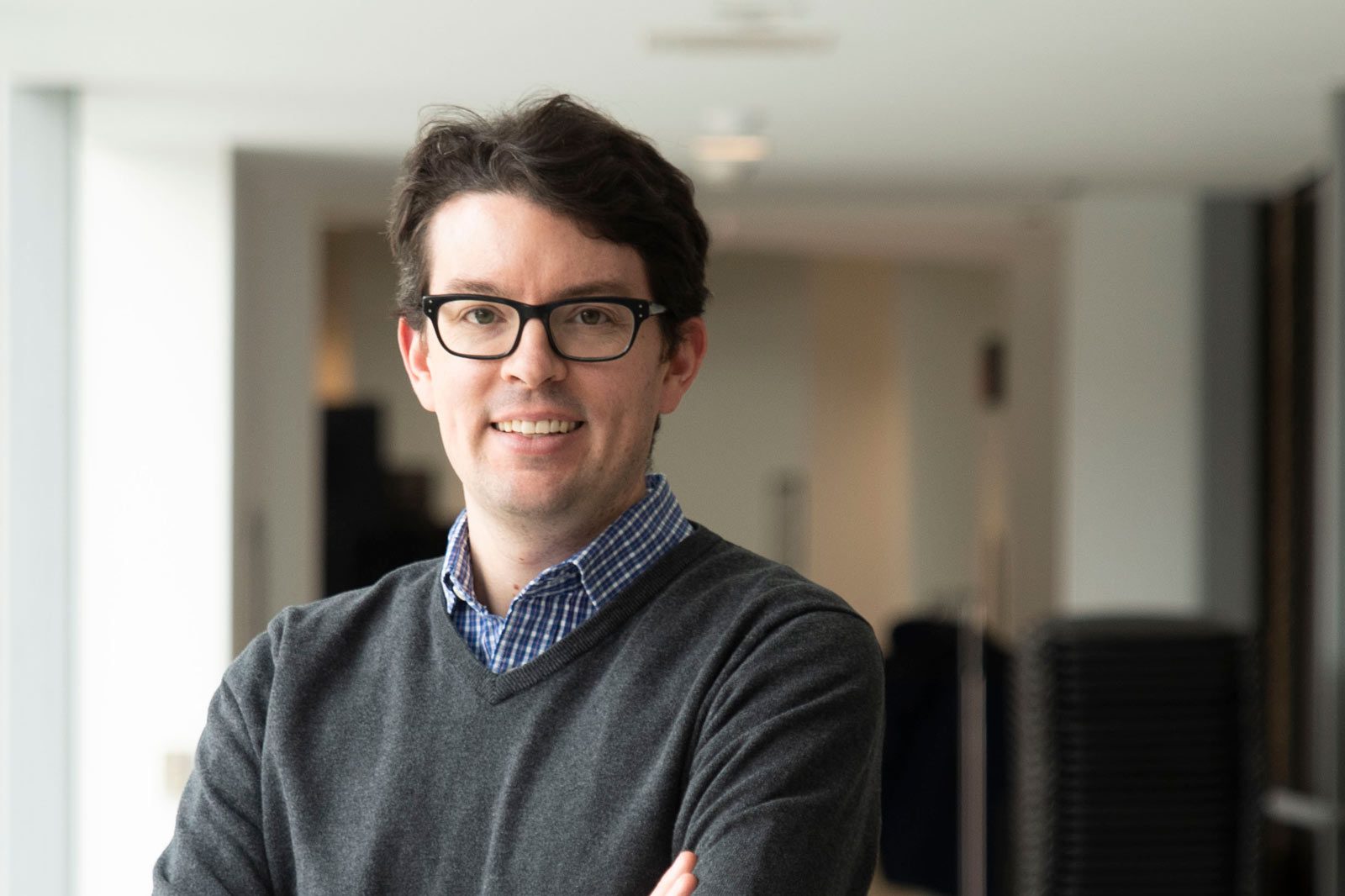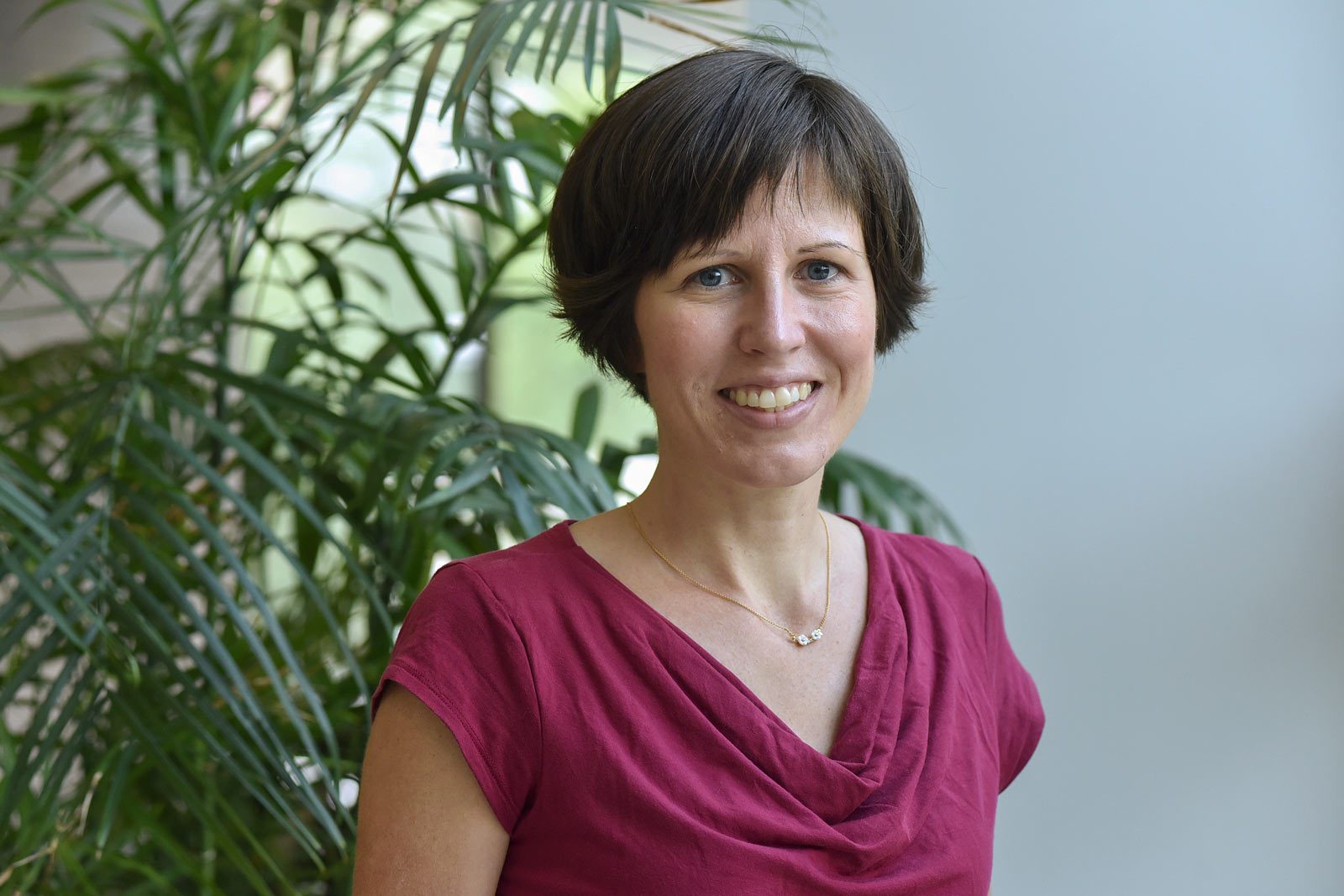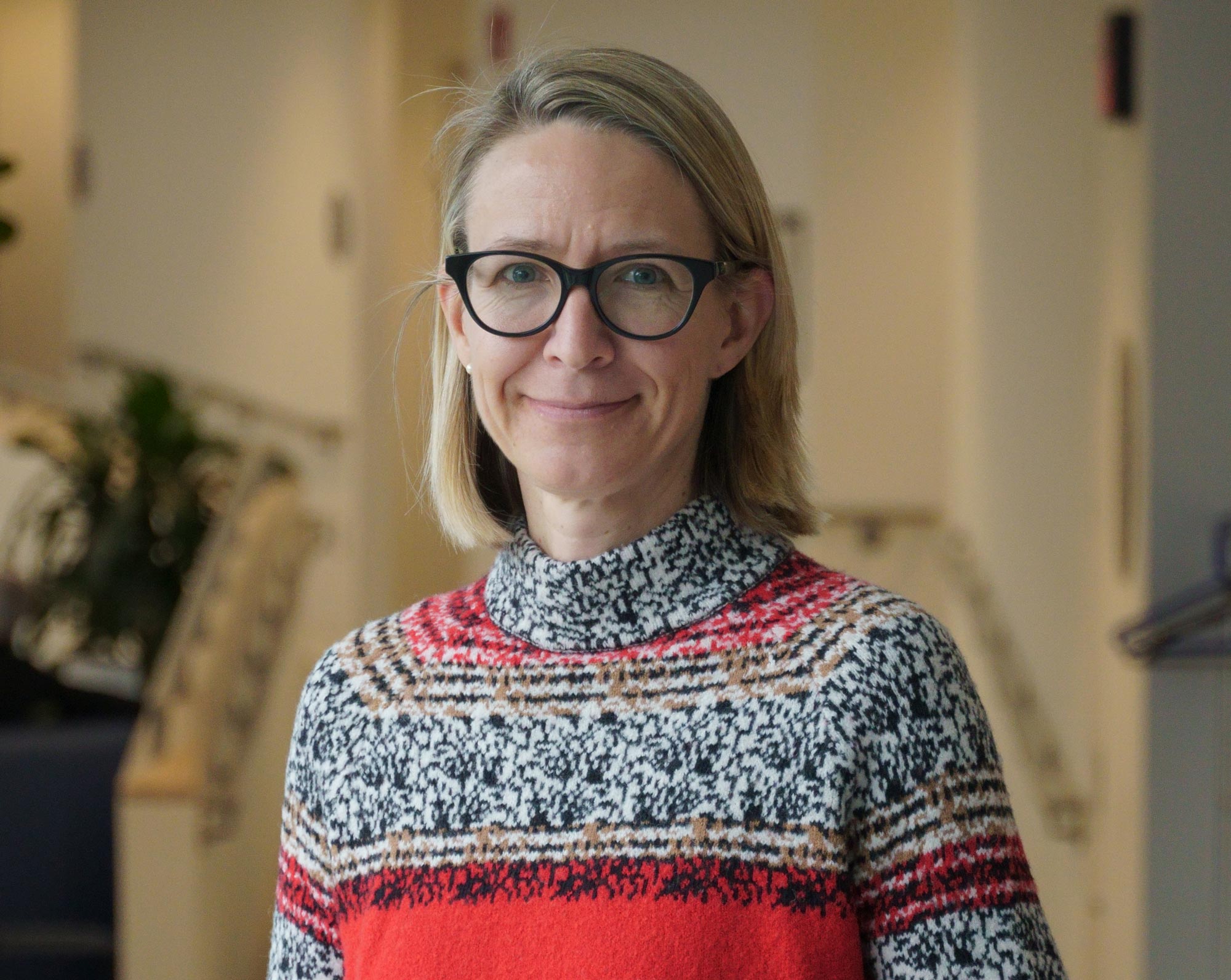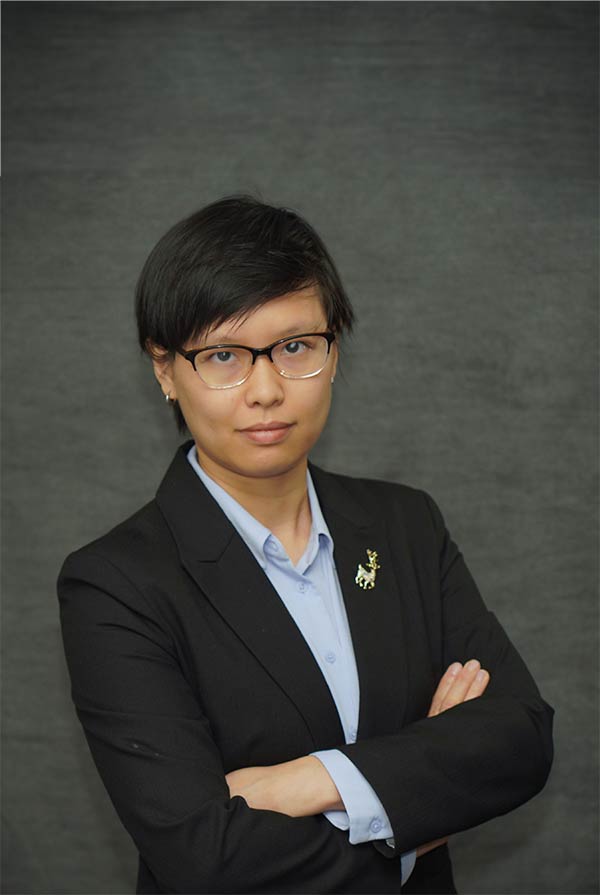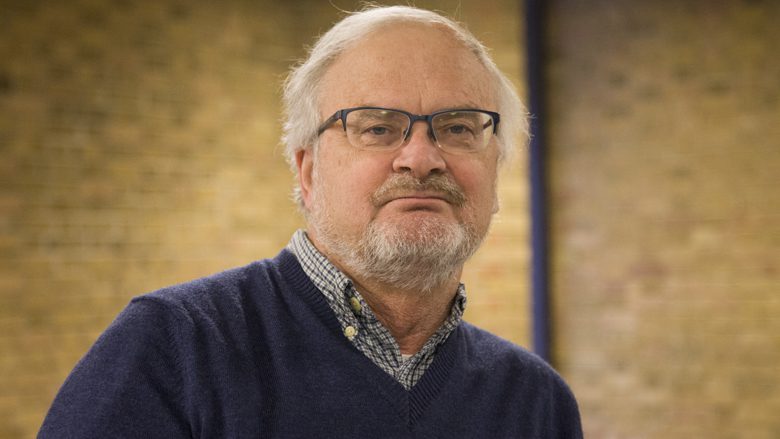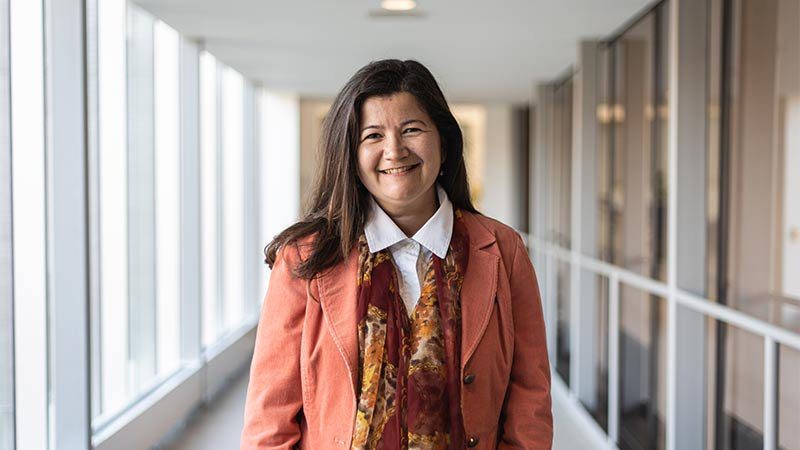Ph.D. in Urban and Regional Planning
Application Deadline:
January 15 annually
Intent to Enroll Deadline:
April 15 annually
About
The Ph.D. in urban and regional planning trains scholars for careers in higher education, research and high-level policy positions. It is a doctoral degree with a flexible, interdisciplinary focus. Graduates work in universities, government, non-profits, and the private sector, in the U.S. and around the world.

Program History

The doctorate in planning began in 1968 as the Ph.D. Program in Urban and Regional Planning under the Office of the Vice President for Academic Affairs. It was initially a university-wide Ph.D. program with faculty participation from many colleges throughout the university. In the late 1970s, the degree moved into the Rackham Graduate School. The name changed to the Ph.D. in Urban, Technological, and Environmental Planning (U.T.E.P.) in 1982.
The degree moved into the College of Architecture and Urban Planning in 1989 and administratively merged with the professional program in planning to form the Urban and Regional Planning Program. The degree is now known as the “Ph.D. in Urban and Regional Planning,” a name change made in 2004. In nearly 60 years of existence, the program has granted over 215 Ph.D. degrees. Graduates hold faculty positions in a range of departments in universities, government, research organizations, and consulting firms.

/ Curriculum
The doctoral curriculum integrates analytical methods, research design, a rigorous understanding of urbanization dynamics, and an examination of broader social theories, processes and policies.
Students address complex systems that typically encompass an array of spatial, environmental, social, political, technical, and economic factors. The emphasis is on theory, analysis, and action.
Each student is also expected to demonstrate an understanding of the literature, theory, and research in a specialization area within the larger discipline of urban and regional planning.
Sample Subjects
Recent students have engaged in subjects as diverse as:
- The political economy of public transit, inner-city revitalization
- Global city urbanization
- Information technology and cyberspace
- The crisis of modernist urbanism
- Suburbanization in developing countries
- Regional planning institutions
- The effects of environmental contamination on patterns of urban and regional development
- The culture of suburban commuting
- The impact of tourism on historical Mediterranean cities
- The application of complex systems analysis to sustainable development
/ Specialization
Doctoral students specialize in a wide range of possible topics.
The highly individualized course of study operates under the premise that concepts and methods from a wide range of professions and academic disciplines are applicable to urban and regional systems. Accordingly, students rely on faculty resources not only from Taubman College of Architecture and Urban Planning but also from other schools, colleges, and institutes of the University of Michigan.
Students commonly take courses in the social sciences and in the professional schools. This emphasis on interdisciplinary collaboration, and on the links between theory and action, are defining characteristics of the doctoral planning degree at the University of Michigan.
Social Sciences Samples
- Sociology
- Anthropology
- History
- Political science
Professional Schools Samples
- Architecture
- Business administration
- Engineering
- Natural resources and the environment
- Public policy
- Public health
- Social work
Primary Specialization
Students are expected to demonstrate an understanding of the literature, theory, and methods from a primary area of specialization. Each student defines this area of specialization in consultation with their faculty advisor(s). An area of specialization might be, for example, transportation planning, community development planning, regional planning, environmental planning, and so on. (If appropriate, a student may further focus their area of specialization by demarcating a subfield within a broader planning topic, such as economic development finance within local economic development.) Students take graduate-level course work in the appropriate discipline(s) and complete a comprehensive examination (described below).
During the first semester in the program, each student should meet with their advisor(s) to:
1. Identify Specialization:
Discuss the student’s goals and interest in doctoral study and identify an area of specialization.
2. Coursework:
Develop a program of study indicating courses to be taken, or courses that have been taken, covering the appropriate literature (theory and method) for the area of specialization. Students will normally take coursework totaling approximately 12 to 15 credit hours for the area of specialization. (Note: One or two courses taken for the master’s degree may apply for either the primary or secondary areas of specialization, but master’s level work normally should not be relied upon too extensively for the purposes of doctoral-level study.)
3. Directed Study:
As three of these credit hours, a student is expected to take a directed study course with their primary advisor and a second faculty reader during either the winter term of the first year or the fall term of the second year of study. The purpose of this directed study is to conduct a literature review that will demonstrate the student’s ability to review and synthesize a body of academic work and that will advance the student’s efforts toward identifying a topic for dissertation research. The directed study is evaluated on a pass/fail basis; initial drafts must be revised until they are of passing quality.
Secondary Specialization
In addition to the primary area of specialization, each student must also identify a secondary area of specialization (i.e., a “minor field” or “outside field”) in consultation with their faculty advisor(s). The secondary area of specialization is frequently from a discipline outside urban and regional planning.
Sample Secondary Specialization Areas
- Urban politics
- Urban history
- Urban sociology
- Demography
- Development economics, environment, behavior, etc.
Students normally take at least six to nine credit hours in this secondary area. Students demonstrate sufficient knowledge in this secondary area (and their ability to integrate the secondary area into their main area of specialization) through their comprehensive examination.
/ Required Courses
Four courses are required of all Ph.D. students: two doctoral-level planning theory courses and a two-course research seminar sequence.
Advanced Urban Theory (URP 700)
The two theory courses, Advanced Urban Theory (URP 700) and Epistemology and Reasoning for Planning Research (URP 701), are offered during the fall term in alternating years. These courses are designed to provide doctoral students a solid theoretical foundation for conducting rigorous scholarly inquiry within the planning field.
Epistemology and Reasoning for Planning Research (URP 701)
The two theory courses, Advanced Urban Theory (URP 700) and Epistemology and Reasoning for Planning Research (URP 701), are offered during the fall term in alternating years. These courses are designed to provide doctoral students a solid theoretical foundation for conducting rigorous scholarly inquiry within the planning field.
Research Design (URP 801)
First-year students are required to take URP 801 (Research Design) during the winter term of the first year.
Ph.D. Research Seminar (URP 802)
Second-year students are required to take URP 802 (Ph.D. Research Seminar) in the winter term of the second year. This two-course sequence seminar has three objectives.
- First, it exposes students to various approaches to research related to planning.
- Second, it enables students to formulate and test out researchable topics among faculty and student peers.
- Finally, it enables students to gain experience in developing an appropriate research design, in writing a detailed research proposal, and in formally presenting the proposal to an audience of faculty and students in the seminar during the second winter semester.
/ Pre-Candidacy Requirements
- Planning theory
- Analytic methods
- Research design
- Primary area of specialization
Students meet these requirements through coursework and exams over a two-year period. During this time, a student’s cumulative grade point average may not fall below a B without academic discipline or probation.
Analytic Methods Courses
Students are expected to be skilled in statistics, in at least two analytic research techniques, and reasonably knowledgeable about several others. Students qualify in analytic techniques by completing the following:
1. Satisfactory performance (B or higher) in two cumulative graduate-level statistics courses.
Students entering with previous statistics experience may wish to enter directly into a second semester statistics course. In the past, students have typically selected one of the following sequences:
- Statistics 402 (Introduction to Statistics & Data Analysis), Statistics 403 (Statistics & Data Analysis II)
- Sociology 510 (Statistics); Sociology 610 (Statistical Methods)
- Natural Resources 438 (Natural Resources Biometrics), Natural Resources 538 (Natural Resources Data Analysis)
- Biostatistics 503 (Introductory Biostatistics), Biostatistics 523 (Biostatistical Analysis for Health-Related Fields)
- The sequence in political science
NOTE: Students wishing to study statistics during the spring or summer terms may want to investigate the Summer Program in Quantitative Methods of Social Research sponsored by the Inter-university Consortium for Political and Social Research (ICPSR) and/or the Summer Institute in Survey Research Techniques conducted by the research staff of the Survey Research Center, Institute for Social Research. Choice of courses to meet requirements should be discussed with your advisor.
2. Competence in at least two analytic/research methods satisfied through nine credit hours of total coursework.
These are methods used in planning research and should prepare the student for their likely area of dissertation work. The requirement is met through completion of nine credits of course work in two analytic/research methods (in addition to statistics), to be defined by the student in conjunction with his or her advisor. (The two methods may be interrelated.) Depending on the research method and the student’s background, more courses may be needed. Courses in these two areas must be completed with a grade of B or higher in order to fulfill this requirement. Graduate level courses that are audited can count for this requirement, as long as the student completes all the work of the course and the instructor provides a letter indicating the grade the student would have received had he or she been enrolled. All plans for satisfying this requirement are the joint responsibility of the student and his or her advisor.
The methods a student selects should relate to their dissertation area. Below are several analytic/research methods in which students have been examined in recent years. Numerous analytic/research methods are appropriate, and students need not be restricted to choices on the list:
- Anthropological methods
- Case study methods
- Complex systems analysis
- Cost benefit & cost effectiveness analysis
- Decision theory & general risk analysis
- Demographic analysis
- Discrete choice analysis
- Differential equations
- Diffusion models
- Economic & other forecasting models
- Evaluation research
- Graph theory
- Historical analysis
- Institutional analysis
- Interview techniques
- Linear programming and general analysis using linear models
- Network & flow methods
- Population growth models
- Probability, both theoretical & heuristic
- Simulation/gaming & game theory
- Spatial analysis
- Survey research
- Time series.
/ Annual Review of Student Progress
At the end of each year of study, students are required to complete an Annual Review. The advisor and the Coordinator of Doctoral Studies may make recommendations for any modifications deemed necessary prior to the start of the following academic year. Note: financial support for the subsequent year, if applicable, depends on timely completion of a satisfactory annual review.
Annual Review Steps
Step 1
By April 30, the student submits TWO COPIES (one copy to their advisor; one copy to the doctoral studies assistant) of the following:
- A completed annual review form, including a concise narrative of plans and goals for the upcoming academic year.
- An up-to-date compliance form.
Step 2
The advisor provides comments to the student and, where necessary, recommends changes in the academic plan. (This consultation between advisor and student may happen in person or by phone). If necessary, the student should provide the advisor and the doctoral studies assistant with copies of a revised version of this review form based on the advisor’s comments.
Step 3
Once the advisor has approved the plan of study for the coming year, the advisor forwards (no later than May 14) to the doctoral studies assistant a copy of the “faculty evaluation form,” which includes a short narrative of student progress (one paragraph).
Step 4
The URP Doctoral Committee reviews the materials, and sends a letter to the student, either confirming their good standing in the program or specifying additional requirements to be in good standing.
Comprehensive Exam
The comprehensive exam tests a student’s knowledge of both their primary and secondary areas of specialization. The exam consists of a take-home, written examination followed by an oral exam. The examination normally occurs before the start of the third year in the Ph.D. program, after completion of all relevant coursework.
1. The Committee:
The student convenes an examination committee of three faculty members, choosing faculty who have expertise in the areas of specialization. At least one member of the committee should be a member of the urban and regional planning faculty. The chair or co-chair of the committee must be a regular member of the planning faculty and cannot be an affiliate faculty member. At least one committee member should represent the student’s secondary area of specialization. (If the student has identified a secondary area of specialization that is traditionally housed in another department on campus, then the student is encouraged to select a faculty member from that outside department as their third committee member.) On occasion, examiners from outside the university have served on students’ examining committees. While this practice is generally not encouraged, written requests for an outside examiner by students are treated on an individual basis by the director of doctoral studies.
2. The Field Statement:
The student meets with the committee chair to plan for the exam and agree on expectations prior to the construction of the exam. In consultation with the chair and committee members, the student identifies appropriate readings and prepares a detailed “field statement” that defines the primary and secondary fields, contains a detailed bibliography of readings, organizes the readings into subfields, and outlines a set of major questions for the fields. The field statement is normally designed principally with the chair and is sometimes analogous to a detailed syllabus that one would prepare for a year-long graduate-level course on the selected specializations. The student often writes possible exam questions that he/she feels are appropriate for the area the exam will cover. The questions are not the questions the committee asks the student; their major function is to help the committee and the student to agree on the scope of the exam.
3. Scheduling the Exam:
The exam must be completed by May 20 of the second year in the program, and it is scheduled on the student’s initiative. Prior to the exam, the student should have completed all coursework (including all incompletes). A student may delay the exam for exceptional circumstances with approval of the faculty adviser and the Director of Doctoral Studies. Students must notify the Director of Doctoral Studies of their intent to take the exam, with a date and time, location, and names of committee members at least one month prior to the exam.
4. The Exam:
The written part of the exam is in the form of a take-home essay. The committee chair typically solicits exam questions from the committee, selects questions to be used, and composes the final examination. The allotted time period to write the exam is determined by the chair, and typically is over three days. The student must submit the exam in the form as directed by the chair (usually as a Word document submitted by email), plus one copy to the program administrator to be placed in the student’s records. The written exam is followed by a two-hour oral exam, generally scheduled to take place within about one week after the written exam. The exam is evaluated on a “Pass/Fail” or “Conditional Pass” basis. If the student does not achieve a passing evaluation, he/she may take the exam one additional time to achieve a “Pass” or “Conditional Pass” status. A “Conditional Pass” indicates that additional requirements must be met, but the exam need not be retaken. Upon completion of the oral portion of the exam, please refer to the Applying for Candidacy section for next steps.
/ Applying for Candidacy
A student advances to candidacy when all program requirements except the dissertation proposal and dissertation have been satisfied. The normal and expected time to achieve candidacy is two years from the date of first enrollment in the doctoral program. In addition to urban and regional planning program requirements, a student must also meet Rackham Candidacy Requirements. Any incomplete courses that are critical to satisfying requirements must be completed before applying for candidacy.
Once all required coursework and the comprehensive exam are successfully completed, a student applies for candidacy by sending a request by email to the URP Director of Doctoral Studies, along with attachments that include the following: (1) a signed Comprehensive Exam Certification Form and (2) a current transcript showing all completed coursework.
The Director of Doctoral Studies will recommend a doctoral student for candidacy by submitting a recommendation to the Rackham Graduate School. When candidacy is approved, a student is ready to begin work on the dissertation and is eligible for URP 995 candidacy registration.
/ Language Requirement
Foreign Language Requirement
There is no foreign language requirement for doctoral planning students. However, work in some areas of specialization and on certain research/dissertation topics may require knowledge of one or more foreign languages.
English Language Proficiency Requirement
Prior to taking the qualifying examinations, students are also expected to demonstrate writing skills in the English language of the sort required to produce a doctoral dissertation. Such writing skills will be demonstrated in the process of completing routine written assignments in core courses.
Students having difficulty doing so are encouraged to take course work at the English Language Institute and/or other units as appropriate, and may be required to take an English Proficiency Examination prior to taking the qualifying examinations.
/ Sample Schedule
Sample First Year
| Fall | |
|---|---|
| URP 700 or 701 | Advanced Urban Theory (700) or Epistemology and Reasoning for Planning Research (701) (offered fall term in odd number years) |
| URP 500 | (for non M.U.R.P. students) and/or Elective |
| [Statistics I] | |
| Elective (methods/specialization) | |
| Winter | |
|---|---|
| URP 612 | Directed Study (Literature Review) or Elective |
| [Statistics II] | |
| 2 Electives | |
| URP 801 | Research Design |
Sample Second Year
| Fall | |
|---|---|
| URP 700 or 701 | Theory |
| URP 612 | Directed Study (Literature Review) or Elective |
| Elective | |
| Winter | |
|---|---|
| URP 802 | Ph.D. Research Practicum |
| 3 Electives | |
| Spring – Summer | |
|---|---|
| Planning Theory Exam (normally given in May) | |
| Comprehensive Exam (scheduled by student; typically taken at the end of summer) | |
| Advanced to Candidacy (by the start of the third year of study) |
Sample Years Three - Four
| Dissertation Proposal Presentation (reviewed and approved by the student’s dissertation committee and the URP Doctoral Committee) | |
| Dissertation research and writing | |
| Informal “Full Draft Review” (at least 6-8 weeks before the formal defense) | |
| Dissertation Defense | |
| Submittal of the final version of the dissertation |
/ Dissertation
Formatting Dissertation Committee
After completing the comprehensive exam and advancing to candidacy, the student must form a dissertation committee, in accordance with the Rackham Graduate School’s “Guidelines for Dissertation Committee Service.”
Within two weeks from advancing to candidacy, the student must send an email to the URP Director of Doctoral Studies, with a pdf attachment of a completed “Dissertation Committee Worksheet for Students to submit to Program”, which can be obtained from the link above. The Director of Doctoral Studies will then submit the formal request to the Rackham Graduate School.
Dissertation Proposal
The student must formally obtain approval of the dissertation proposal as outlined in the URP Ph.D. Program Overview Schedule and Policies document. It is the student’s responsibility to schedule the initial review hearing attended by both the rotating dissertation proposal committee and the dissertation committee, and to schedule the proposal defense attended by the dissertation committee, both in a timely manner.
The student must notify Lisa Hauser by email of the proposal defense date at least three weeks prior to the meeting, including the location of the defense meeting, a title, and an abstract. After gaining approval from the dissertation committee, the dissertation chair must send an email to the Director of Doctoral Studies that includes (a) the date of the proposal defense, (b) a list of all committee members present at the defense, (c) a title of the proposal, (d) an abstract of the proposal (250 – 350 words), and (e) a copy of the final dissertation proposal to be filed with URP records. Receipt of the email from the dissertation chair will constitute formal approval of the proposal by the committee and readiness to proceed with dissertation work.
Dissertation Process
The dissertation is prepared in accordance with the Rackham Graduate School’s Doctoral Dissertation Requirements, and as outlined in the URP Ph.D. Program Overview Schedule and Policies document.
The student is responsible for several steps: (a) scheduling and reserving rooms for the URP pre-defense hearing (which ordinarily should occur at least six weeks and no less than three weeks prior to the dissertation defense) and the defense meeting, both in a timely manner; (b) notifying Lisa Hauser by email of the defense date at least three weeks prior to the meeting, including the location of the defense meeting, a title, and an abstract; (c) providing a complete dissertation draft, including an abstract and bibliography, to committee members at least two weeks (longer is advised) before the defense date; and (d) registering for an eight-hour candidacy enrollment (995 Dissertation Research) for the term in which the defense is held.
A dissertation defense typically consists of two parts: the first is a formal, public presentation of the dissertation research, followed by questions and answers from both the dissertation committee and the audience. Defenses are advertised and open to the public, and other students and faculty are frequently in attendance. The second part is a closed session for the candidate and the dissertation committee. During the defense, the student may be asked to reconsider certain aspects of the work and to make changes or corrections in the dissertation. At the end of the session, the chair will discuss the oral defense with other members of the committee and inform the student of the outcome. The duration of a defense can vary, but the candidate should reserve the room for a three-hour period.
Formal approval of the dissertation (e.g., formatting of the final document) and applying for graduation are governed by the Rackham Graduate School.
/ Frequently Asked Questions
What is the Rackham Graduate School?
The Rackham Graduate School and Taubman College work as a team to manage the application review process. As an applicant you will be interacting with both offices.
Do I need to submit GRE scores?
No. Effective for 2022 applicants and beyond, Graduate Record Examination (GRE) scores are no longer required nor considered for admission to all graduate programs, including the Master of Urban Design, at Taubman College.
Do I need an official transcript to apply?
Yes. The Rackham Graduate School requires applicants to upload a scanned copy, front and back, of their official transcript/academic record issued by the Registrar or Records Office to the applicant, to ApplyWeb for each bachelor’s, master’s, professional, or doctoral degree earned or in progress.
Is there an interview process?
Yes. As part of the competitive process of admission evaluation, the Admissions Committee will conduct personal interviews with each applicant. Interviews are arranged after the deadline and applications have been reviewed.
My English proficiency score doesn’t meet the minimum requirement, can I still apply?
Yes, you can still apply. However, Taubman College doesn’t provide conditional admission. We encourage you to retake the test until you receive the minimum score.
How do I check the status of my application?
Applicants can verify application data and status online approximately 10–15 days after their application is submitted. The admissions office will send an email to each applicant that includes the University of Michigan Identification Number (UMID). You will need to use a login ID and password to confirm some personal data before viewing your application status. Student Service staff will try to keep all materials received current. However, please allow sufficient time for processing before contacting the office. See the Apply page application status and evaluation section.
When will I receive my admission decision?
Applicants will be notified of their admission decision by late-February or early March. If you are admitted, you will be able to see that you have been recommended for admission via the online Wolverine Access web application status portal. Decision letters are sent via email.
Are there any resources available for International Students with questions related to the visa application, health insurance or Life in Ann Arbor?
Yes. The Website of the International Center at the University of Michigan offers helpful resources for incoming international students related to topics such as Immigration and Visas, Health Insurance and Housing or Local Transportation.
When do I need to enter my decision?
April 15th.
Where can I find more information regarding the University’s COVID-19 vaccination requirements, safety and prevention efforts and testing programs?
Please refer to https://campusblueprint.umich.edu/ for latest news on the coronavirus situation on campus and the COVID-19 policies currently in place for students and faculty.
Do I need to secure an advisor prior to applying?
No, we only encourage students to become familiar with our Ph.D. faculty and research interests. Please feel free to reach out to faculty directly as well.
/ Funding Support and Resources
Making decisions about the next step in your educational journey is a time full of opportunity and potential; however, it may also be accompanied by concerns about costs. Taubman College provides full funding to all students admitted to its doctoral programs, including a full tuition waiver, health insurance, and a generous stipend package.
/ Recent Graduates
Graduates from the Ph.D. in Urban and Regional Planning program have completed Doctoral Dissertations on topics ranging from “Regions, Race, Rail and Rubber: An Analysis of How Transportation Planning Decisions Contributed to Regional Segregation, 1922 – 1973” to “Urban Planning and Its Feminist Histories.” View a selection of recent Doctoral Dissertations.
/ Faculty Available as Committee Chairs
Below are faculty who can serve as Urban and Regional Planning Ph.D. committee chairs.
Career
Taubman College Career and Professional Development offers a variety of programs, services and resources to assist students and alumni in exploring careers, securing positions and continuing skill development and management.
For additional information on career opportunities, visit our career and professional development page.

